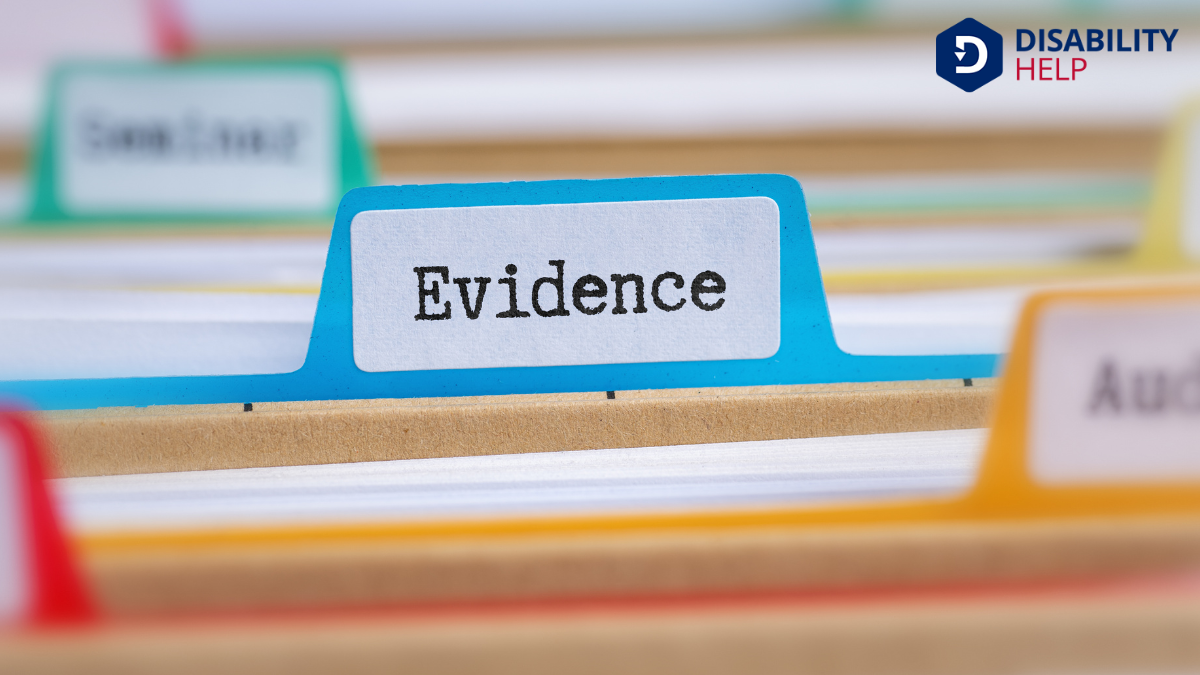As someone who's navigated the often complex world of insurance claims, I understand the frustration when an adjuster denies a claim. It might seem unfair, but there are several reasons this can happen, ranging from policy exclusions to insufficient evidence. What can you do when faced with a denial? Understanding the adjuster's role and the claims process is essential, and there are steps you can take to challenge their decision. Let's explore your options.
Key Takeaways
- An adjuster can deny a claim if there is insufficient evidence supporting the claim's validity.
- Claims may be denied due to missing or incorrect information in the submitted documentation.
- Claims are often denied when they fall outside the policy's coverage period or specific exclusions.
- Non-payment of insurance premiums can lead to a lapse in coverage, resulting in claim denial.
- Misrepresentation or inaccurate information can lead to the denial of an insurance claim.
Understanding the Role of an Insurance Adjuster
An insurance adjuster plays an essential role in the claims process, acting as the intermediary between the insurer and the policyholder.
As an adjuster, I assess the damage, gather evidence, and review the policy details to guarantee everything aligns with the claim. My job is to determine the claim's validity and the compensation amount. By thoroughly evaluating the situation, I help both parties understand what's covered and what isn't.
I communicate clearly with you, the policyholder, addressing any questions you might have. My focus is on guaranteeing a fair outcome for all involved.
I aim to make the process as smooth as possible by providing honest and transparent assessments. Trust is key, and I'm here to help you navigate this complex process.
Common Reasons for Denied Claims

While my role as an adjuster focuses on facilitating a fair resolution for claims, there are instances where a claim might be denied. One reason is missing or incorrect information. If details don't match what's required, it can lead to a denial.
Also, claims might be denied if the damage falls outside the coverage period. For instance, if the incident occurred before the policy started, it won’t be covered.
Another common reason is non-payment of premiums. If the policyholder hasn’t kept up with payments, the coverage may lapse, leading to denial.
Finally, if the claim is fraudulent or exaggerated, it’s an adjuster's responsibility to deny it to protect the insurance company and honest policyholders.
Understanding these reasons helps in preparing valid claims.
Policy Exclusions and Limitations
Even though an insurance policy might seem thorough, it’s vital to understand that it often includes specific exclusions and limitations. These are conditions or scenarios that the policy doesn’t cover. For example, if you have homeowners insurance, it mightn't cover damages from floods or earthquakes unless you’ve added those specific coverages.
It’s important to read your policy carefully to know what’s included and excluded.
I’ve learned that exclusions and limitations can sometimes lead to claim denials. If a claim falls outside the policy’s coverage, an adjuster may deny it. It’s not about being unfair; it’s about adhering to the contract.
Always make certain you discuss potential gaps with your agent so you’re not caught off guard when you need to file a claim.
Misrepresentation or Inaccurate Information
Understanding exclusions and limitations in your policy is just one piece of the puzzle when it comes to claim denials.
Another critical aspect is the accuracy of the information you provide. When you file a claim, the details you submit must be truthful and precise. Misrepresentation, whether intentional or accidental, can lead to a denial.
For instance, if you overstate the value of an item or omit relevant facts, the adjuster may question the validity of your claim. It's essential to double-check every detail before submitting your paperwork.
I know it might seem tedious, but accuracy safeguards your claim from being rejected. Always be honest and thorough to guarantee your claim stands a better chance of approval.
Lack of Sufficient Evidence or Documentation

When I file a claim, I need to guarantee I provide all the necessary documentation and evidence.
If I miss submitting essential proof or my documentation is incomplete, an adjuster can deny my claim.
It's vital to gather and organize every piece of evidence to support my case effectively.
Insufficient Claim Documentation
Many claims get denied because of insufficient documentation, and it's a situation that frustrates both policyholders and adjusters.
I get it—gathering everything you need can feel overwhelming. To streamline the process, focus on these essentials:
- Detailed Receipts: Keep copies of purchase receipts for items you’re claiming.
- Photos or Videos: Capture clear images or videos of the damage as soon as possible.
- Repair Estimates: Obtain estimates from reputable contractors or service providers.
- Communication Records: Document all interactions with insurers, including emails and phone calls.
Missing Essential Evidence
While gathering documentation is essential, sometimes claims still face denial due to missing vital evidence. I know it’s frustrating when you’ve provided what seems like everything, yet the adjuster still says it’s not enough.
Vital evidence often involves specific details like receipts, photos, or witness statements that directly support your claim. Without these, adjusters may find it hard to justify approval. It’s not just about quantity; it’s about relevance and clarity.
Think about whether you’ve overlooked anything that directly connects your claim to the incident. I’ve seen claims denied simply because a significant piece of evidence wasn’t submitted.
Reviewing your documents meticulously guarantees you’ve covered all bases. If something’s missing, don’t hesitate to ask for guidance on what’s needed.
Incomplete Proof Submission
Although it might seem like you've provided all necessary documents, the absence of key pieces can lead to a claim denial due to incomplete proof submission.
I understand how frustrating it can be when an adjuster tells you that your claim is lacking. You might wonder what's missing or why it wasn't enough.
Here’s what you should verify you include:
- Detailed incident report: Clearly outline what happened and when.
- Photographic evidence: Capture damages or relevant scenes.
- Receipts or invoices: Provide proof of expenses related to the claim.
- Witness statements: Include any supporting accounts from others present.
These elements strengthen your claim and reduce the chance of denial.
If you're missing these, the adjuster might feel there’s not enough evidence, risking a negative outcome.
Steps to Take When Your Claim Is Denied
When my claim was denied, the first step I took was to carefully review the denial letter to understand the reasons behind the decision.
It’s essential to gather all the necessary supporting evidence that might strengthen your case.
Review Denial Letter
Receiving a denial letter for your insurance claim can be frustrating, but understanding its contents is your first step in addressing the issue.
First, read the letter carefully to identify why your claim was denied. Look for specific details or terms that might seem unclear.
Here are some key points to examine:
- Reason for Denial: What specific policy terms or conditions led to the denial?
- Policy References: Are there sections in your policy that you need to review?
- Deadlines for Appeal: Note any timelines for submitting an appeal or providing additional information.
- Contact Information: Is there a specific person or department you should reach out to for more details?
Understanding these elements will help you prepare to challenge the decision effectively.
Gather Supporting Evidence
Once you've reviewed the denial letter and grasped the reasons behind your claim's rejection, it's time to strengthen your case by gathering supporting evidence.
First, collect all relevant documents, such as police reports, medical records, or receipts. These can counter the denial reasons.
Next, photograph any damage or injuries, ensuring the images are clear and detailed. If there are witnesses, reach out and obtain their statements; their accounts might provide essential support.
Don't forget to review your policy thoroughly; understanding every detail can reveal coverage aspects the adjuster overlooked.
Finally, consider seeking expert opinions, like from a contractor or medical professional, to validate your claim.
Appealing a Denied Claim
How does one navigate the sometimes frustrating process of appealing a denied claim?
Let me guide you through it. First, take a deep breath and remember that you’re not alone in this.
Begin by carefully reviewing the denial letter to understand the reasons behind it. Next, you’ll want to gather any additional evidence that supports your case.
Here’s a quick checklist to keep you on track:
- Review the Denial Reason: Understand why your claim was denied.
- Gather Additional Documentation: Collect any missing or new evidence.
- Write an Appeal Letter: Clearly state why your claim should be reconsidered.
- Submit within Deadlines: Verify your appeal is timely to avoid complications.
Legal Options and Seeking Professional Help

Though managing an appeal can feel intimidating, you don’t have to handle it alone; exploring legal options and seeking professional help might be the next logical step.
I know it can be unsettling to think about hiring a lawyer, but they can offer expertise and support throughout the process. A skilled attorney understands the complexities of insurance claims and can help build a strong case. They’ll assess your situation, advise on possible outcomes, and represent your interests.
Additionally, consulting with a public adjuster could be beneficial. These professionals can review your claim independently and negotiate with the insurance company on your behalf.
Conclusion
In my experience, having your claim denied can feel overwhelming, but don't lose hope. Remember, understanding why it was denied is the first step. Review your policy, gather all necessary documents, and consider appealing the decision. If needed, seek professional help to navigate the complexities. Don’t hesitate to fight for what you believe is rightfully yours. Stay proactive, informed, and persistent—you're not alone in this process, and resolution is possible.






